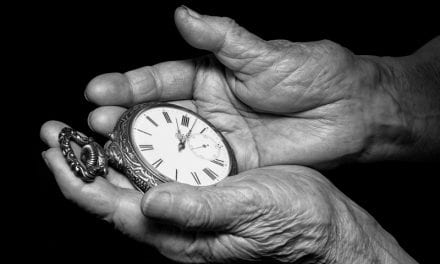Thirty percent of severe alcoholics develop liver disease, but scientists have not been able to explain why only a subset is at risk. A research team from Northwestern University and Rush University Medical Center now has a possible explanation: disrupted sleep and circadian rhythms can push those vulnerable over the edge to disease.
The team studied mice that essentially were experiencing what shift workers or people with jet lag suffer—their internal clocks were out of sync with the natural light-dark cycle. Another group of mice had circadian disruption due to a faulty gene. Both groups were fed a diet without alcohol and next with alcohol, and the team then examined the physiological effects.
The researchers found the combination of circadian rhythm disruption and alcohol is a destructive double hit that can lead to alcoholic liver disease.
The study was published last month by the journal PLOS ONE.
In the study, the Northwestern and Rush researchers used two independent approaches, studying both genetic and environmental animal models. The circadian rhythms of one group of mice were disrupted genetically—each animal had a mutant CLOCK gene, which regulates circadian rhythms. The second group’s circadian rhythms were disrupted environmentally—the animals’ light-dark cycle was changed periodically, leading to a state similar to chronic jet lag.
Mice in both groups, prior to ingesting alcohol, showed an increase in “gut leakiness” (the intestinal lining becomes weak and causes dangerous endotoxins to get into the blood stream).
Next, both groups of mice were fed alcohol. After only one week, animals in both groups showed a significant additional increase in gut leakiness, compared to control mice on an alcohol-free diet. At the end of the three-month study, mice in both groups were in the early stages of alcoholic liver disease.
“We have clearly shown that circadian rhythm disruption can trigger gut leakiness, which drives the more severe pathology in the liver,” said Keith Summa, a co-first author of the study and an MD/PhD candidate.
“For humans, circadian rhythm disruption typically is environmental, not genetic, so individuals have some control over the behaviors that cause trouble, be it a poor sleep schedule, shift work, or exposure to light at night,” he said.
Sleep and circadian rhythms are an integral part of biology and should be part of the discussion between medical doctors and their patients, the researchers believe.


